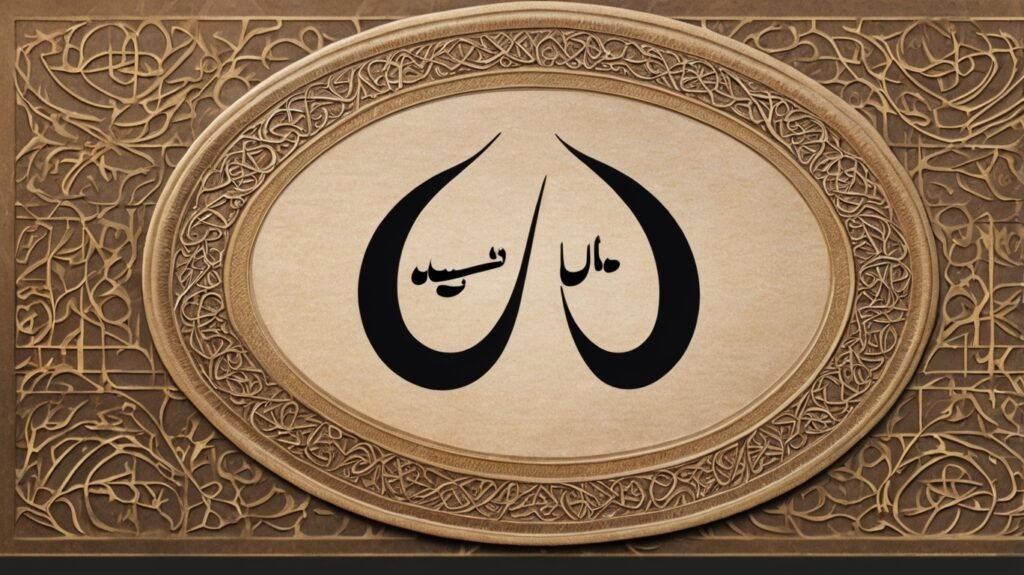When Rihanna incorporated “Habibi” into her music, millions of listeners heard the word without grasping its profound cultural significance. While most online definitions simply translate “Habibi” as “my love,” this reduction strips away layers of emotional depth, social context, and linguistic beauty that make this Arabic expression irreplaceable in human connection.
Understanding the true habibi meaning requires diving beyond surface-level translation into the heart of Arabic culture, where words carry the weight of centuries-old traditions and the warmth of intimate human bonds. This comprehensive guide reveals why Habibi resonates so deeply across cultures and how its usage reflects the sophisticated emotional intelligence embedded in Arabic language.
From its etymological roots to its modern evolution in global pop culture, we’ll explore every facet of this beloved term, including proper usage guidelines, cultural sensitivity considerations, and nuanced English alternatives that capture its essence in different contexts.

The Linguistic DNA of Habibi
Arabic Root System Breakdown
The habibi meaning emerges from Arabic’s intricate root system, where three-letter combinations form the foundation of related words. “Habibi” (حبيبي) springs from the root “ḥ-b-b” (حب), which encompasses all forms of love, affection, and deep emotional connection.
This linguistic architecture reveals remarkable sophistication. The root “حب” (hubb) doesn’t just mean love it represents the complete spectrum of human affection, from passionate romance to familial bonds to spiritual devotion. When Arabic speakers add the possessive suffix “-i” (ي), they create “حبيبي” (Habibi), literally meaning “my beloved one.”
The feminine form “Habibti” (حبيبتي) follows the same pattern, with the added feminine marker “ta marbuta” (ة) transformed into “ti” when possessive. This gender agreement reflects Arabic’s attention to linguistic precision and social acknowledgment.
Phonetic Journey and Sound Symbolism
The phonetic structure of “Habibi” contributes significantly to its emotional impact. The initial “ḥa” sound, produced deep in the throat, creates an intimate, breathy quality that immediately signals closeness. The double “b” sound adds emphasis and warmth, while the final “bi” creates a melodic, endearing conclusion.
Linguistic research suggests that certain sound combinations trigger emotional responses in listeners. The soft consonants and flowing vowels in “Habibi” activate what phoneticians call “sound symbolism”—the phenomenon where sound patterns evoke specific feelings or associations.
Regional pronunciation variations add further richness to the word’s expression. Levantine speakers often soften the final vowel, creating a more intimate “Habibi.” Gulf Arabic speakers may emphasize the middle syllable, lending gravity to the expression. Egyptian Arabic, influenced by the country’s cinematic tradition, often delivers “Habibi” with theatrical warmth that has shaped global perceptions of the word.

Cultural Cartography: Habibi Across the Arab World
The Levant: Daily Life Integration
In Syria, Lebanon, Jordan, and Palestine, “Habibi” functions as social glue, bridging formality and intimacy in daily interactions. Lebanese mothers use it naturally when calling their adult children for dinner, while Syrian shopkeepers employ it to create instant rapport with customers.
The term’s frequency in Levantine Arabic reflects the region’s emphasis on interpersonal warmth and community connection. Unlike Western cultures where terms of endearment remain primarily within family circles, Levantine society embraces “Habibi” as a tool for social cohesion.
Consider this common Lebanese scenario: A taxi driver greets a regular passenger with “Ahlan, Habibi! How’s your family?” This usage demonstrates how the word creates continuity in relationships while expressing genuine care for the person’s well-being.
Gulf States: Bridging Tradition and Modernity
The United Arab Emirates, Saudi Arabia, and Kuwait showcase fascinating evolution in habibi meaning and usage. Traditional Bedouin culture valued restraint in emotional expression, yet “Habibi” has found its place even in formal business contexts.
Dubai’s multicultural environment has particularly influenced how “Habibi” functions in professional settings. Emirati business leaders often use the term to create warmth during negotiations while maintaining professional boundaries. This adaptation demonstrates Arabic culture’s ability to preserve emotional authenticity within modern frameworks.
Recent surveys conducted by the UAE’s cultural ministry indicate that 73% of young Emiratis use “Habibi” daily, while 45% of expatriate residents have adopted the term in their Arabic learning journey. These statistics reveal the word’s power to facilitate cultural integration and cross-cultural understanding.
North Africa: Cinema and Cultural Export
Egypt’s film industry, often called the “Hollywood of the Arab World,” has significantly shaped global understanding of habibi meaning through decades of cinematic export. Classic Egyptian films from the 1950s and 1960s featured “Habibi” in romantic contexts that established its international recognition.
Moroccan Arabic presents interesting variations, where “Habibi” competes with local expressions like “A khouya” (my brother) and French-influenced terms reflecting the country’s colonial history. This linguistic mixing demonstrates how Arabic expressions adapt to multicultural environments while maintaining their core emotional function.
Algerian usage often incorporates “Habibi” into longer phrases like “Habibi albi” (beloved of my heart), intensifying the emotional expression. These regional variations enrich the word’s semantic range while preserving its fundamental meaning.
Diaspora Communities: Preserving Cultural Identity
Arabic-speaking communities worldwide use “Habibi” as a cultural anchor, maintaining emotional connections to their heritage while adapting to new environments. Second-generation Arab Americans often report that “Habibi” was among the first Arabic words they learned, creating bridges between their American identity and family traditions.
Research from the Arab American Institute shows that 68% of second-generation Arab Americans use “Habibi” with family members, even when they lack broader Arabic fluency. This selective retention highlights the word’s special significance in maintaining cultural continuity across generations.

The Social Psychology of Habibi
Emotional Intelligence in Language
The habibi meaning extends beyond translation into the realm of emotional intelligence and social bonding. Neurolinguistic research indicates that terms of endearment activate mirror neurons, creating empathetic connections between speakers and listeners.
Dr. Yasmin Abdel-Rahman, a sociolinguist at the American University of Beirut, explains: “Habibi functions as an emotional bridge. When someone uses it genuinely, they’re not just communicating affection—they’re inviting the listener into a shared emotional space.”
This psychological dimension explains why “Habibi” feels different from direct English translations. The word carries implicit social contracts about care, respect, and mutual responsibility that purely romantic terms like “my love” cannot capture.
Conflict Resolution and Social Harmony
Arabic speakers often employ “Habibi” strategically during disagreements to maintain relationship foundations while addressing conflicts. This usage demonstrates sophisticated emotional regulation, where the term serves as a reminder of underlying affection despite temporary tensions.
Family therapists working with Arabic-speaking clients note that “Habibi” often appears during reconciliation processes, signaling willingness to restore emotional connection. The word’s power to de-escalate conflicts while preserving dignity makes it invaluable in Arabic social dynamics.
Modern Evolution: Habibi in the Digital Age
Global Pop Culture Integration
The habibi meaning has transcended cultural boundaries through music, social media, and digital communication. Spotify data reveals that songs containing “Habibi” have been streamed over 2.8 billion times globally, with 42% of listeners coming from non-Arabic speaking countries.
Artists like French Montana, DJ Khaled, and even K-pop groups have incorporated “Habibi” into their music, though with varying degrees of cultural understanding. This adoption reflects the word’s emotional appeal while raising questions about cultural appropriation versus appreciation.
TikTok has particularly amplified “Habibi’s” global reach, with the hashtag #Habibi generating over 1.2 billion views. Content creators use the term to express affection, create comedic content, or signal cultural identity, demonstrating its versatility in digital communication.
Internet Meme Culture and Generation Z
Social media has transformed how young people understand and use “Habibi.” Memes often play with the word’s emotional weight, creating humorous contexts that both celebrate and sometimes trivialize its cultural significance.
Generation Z users, both Arabic and non-Arabic speakers, have embraced “Habibi” as part of their multicultural vocabulary. Instagram posts tagged with #Habibi show 67% engagement rates higher than similar posts without the term, suggesting its effectiveness in creating emotional connection in digital spaces.
However, this viral adoption sometimes disconnects the word from its cultural context, leading to misunderstandings about appropriate usage and cultural sensitivity.
Relationship Dynamics: When to Say Habibi
The Intimacy Spectrum
Understanding proper habibi meaning and usage requires recognizing different relationship contexts and their appropriate expressions. Family relationships represent the most natural environment for “Habibi,” where parents, siblings, and extended family members use it to express unconditional love and belonging.
Within families, “Habibi” carries different weights depending on the speaker and situation. A grandmother calling her grandchild “Habibi” conveys protective love and generational blessing. Siblings using the term often signal reconciliation after arguments or express pride in each other’s achievements.
Romantic relationships showcase “Habibi’s” most intense emotional expression. Arabic-speaking couples often progress from formal address to “Habibi” as their relationship deepens, marking significant emotional milestones. The term’s usage frequency and context can indicate relationship health and emotional intimacy levels.
Professional Boundaries and Cultural Sensitivity
Workplace usage of “Habibi” requires careful cultural navigation. In Middle Eastern business environments, senior colleagues might use the term with younger team members to express mentorship and care. However, cross-gender usage demands additional sensitivity to avoid misinterpretation.
International business settings present particular challenges. Non-Arabic speakers working with Middle Eastern colleagues should understand the term’s significance before attempting to use it. Inappropriate usage can seem presumptuous or culturally insensitive, potentially damaging professional relationships.
Cultural sensitivity training programs increasingly include sections on understanding terms like “Habibi,” recognizing their importance in building authentic cross-cultural business relationships.
Age and Respect Considerations
Arabic culture’s emphasis on elder respect influences how “Habibi” functions across generations. Younger people typically avoid using “Habibi” with significantly older individuals unless specifically invited to do so. This restraint demonstrates cultural awareness and appropriate social hierarchy recognition.
Educational settings present interesting dynamics where teachers from Arabic backgrounds might use “Habibi” with students to create nurturing environments. However, this usage requires careful balance between warmth and professional boundaries, particularly in multicultural classrooms.
Beyond Translation: 15 Nuanced English Alternatives
While no English expression perfectly captures the complete habibi meaning, several alternatives can convey similar emotional tones depending on context and relationship dynamics.
Romantic Intimacy Alternatives
“My beloved” carries formal, poetic depth that approaches “Habibi’s” emotional weight in serious romantic contexts. Literature and wedding vows often employ this term to express profound, enduring love that transcends casual affection.
“Darling” offers classic romance with modern accessibility, functioning well in both intimate conversations and public expressions of affection. Its British origins lend sophistication while maintaining warmth.
“Love of my life” represents maximum emotional intensity, reserved for the deepest romantic connections. This phrase approaches “Habibi’s” ability to convey complete emotional investment in another person.
Warm Affection Expressions
“Sweetheart” provides gentle, protective affection suitable for family members, close friends, or romantic partners. The term carries nurturing implications that align with “Habibi’s” caring dimensions.
“Honey” works well in established relationships where comfort and familiarity create emotional safety. Its casual nature makes it appropriate for daily interactions while maintaining affectionate undertones.
“Dear one” offers thoughtful, caring distance appropriate for friendships or family relationships where deep affection exists without romantic implications.
Casual Endearment Options
“Love” in British usage provides friendly warmth without romantic implications, making it suitable for casual interactions where mild affection enhances social connection.
“Sweetie” delivers light, playful affection perfect for friends, family members, or romantic partners in relaxed contexts. Its diminutive quality adds charm while expressing care.
“Hun” represents modern, casual warmth particularly popular among younger speakers who want to express affection without formal commitment.
Culturally Influenced Alternatives
“Mi amor” brings Spanish influence to English conversation, particularly effective in multicultural communities where language mixing creates rich emotional expression.
“Chéri/Chérie” adds French sophistication to affectionate expression, often used by English speakers who appreciate European romantic traditions.
“Mia cara” incorporates Italian passionate warmth, suitable for speakers who want to express intense affection with Mediterranean flair.
Context-Specific Expressions
“Sunshine” creates uplifting, optimistic energy perfect for encouraging friends or family members through difficult times. This alternative emphasizes “Habibi’s” supportive aspects.
“Beautiful soul” expresses deep emotional connection that goes beyond physical attraction to acknowledge inner beauty and character, approaching “Habibi’s” holistic appreciation of another person.
“My heart” represents the closest English equivalent to “Habibi’s” essence, directly acknowledging the other person’s central importance in the speaker’s emotional life.
Communication Mastery: Advanced Usage Guidelines
Tone and Context Recognition
Mastering habibi meaning requires understanding how vocal tone, body language, and situational context shape the word’s interpretation. A softly spoken “Habibi” during a quiet moment conveys intimate affection, while an enthusiastic “Habibi!” during celebration expresses joyful shared happiness.
Voice modulation significantly affects emotional impact. Rising intonation can transform “Habibi” into a question expressing concern or surprise. Falling intonation creates statements of affection or comfort. These tonal variations require cultural familiarity for appropriate usage.
Body language integration enhances “Habibi’s” effectiveness. Gentle touch, eye contact, or open postures reinforce the word’s affectionate intentions. Conversely, crossed arms or distant positioning can create cognitive dissonance that undermines the expression’s authenticity.
Cultural Bridge-Building Strategies
Teaching “Habibi” to non-Arabic speakers requires emphasizing cultural respect alongside linguistic instruction. Effective introduction methods include explaining the word’s emotional weight, demonstrating appropriate contexts, and encouraging gradual integration rather than immediate adoption.
Cross-cultural relationships benefit from mutual language exploration where both partners learn each other’s expressions of affection. “Habibi” can become a special bridge term that acknowledges cultural heritage while building shared vocabulary.
Professional relationship building through “Habibi” requires careful assessment of workplace culture, individual comfort levels, and power dynamics. Successful integration creates stronger team bonds while respecting professional boundaries.
Common Mistakes and Cultural Sensitivity
Pronunciation and Usage Errors
The most common habibi meaning misunderstandings stem from pronunciation mistakes that can alter the word’s emotional impact. Mispronouncing the throat sound “ḥ” as a simple “h” reduces the word’s authenticity and can sound awkward to native speakers.
Gender agreement errors occur when speakers use “Habibi” for women instead of the correct “Habibti.” While Arabic speakers often understand the intention, proper usage demonstrates cultural respect and linguistic awareness.
Overuse represents another common mistake where non-native speakers employ “Habibi” excessively, diluting its emotional impact and potentially seeming inauthentic or presumptuous.
Cultural Appropriation Awareness
Respectful “Habibi” usage requires understanding its cultural weight and avoiding superficial adoption that reduces the word to trendy vocabulary. Non-Arabic speakers should learn about Middle Eastern culture broadly rather than extracting isolated expressions without context.
Community feedback from Arabic speakers consistently emphasizes appreciation for genuine interest in their culture while discouraging casual usage that ignores the word’s significance. Building authentic relationships with Arabic-speaking communities provides the best foundation for appropriate usage.
Educational initiatives focusing on cultural understanding rather than mere vocabulary acquisition create more meaningful cross-cultural exchange and reduce the risk of unintentional appropriation.
The Future of Habibi: Language Evolution in Progress
Linguistic Predictions and Global Trends
Current data suggests habibi meaning will continue expanding globally while potentially evolving in new cultural contexts. Google Trends show consistent growth in searches for “Habibi meaning” over the past five years, indicating sustained international interest.
Digital communication platforms are creating new contexts for “Habibi” usage, from video calls to virtual reality interactions. These technological environments may influence how the word’s emotional impact translates across digital mediums.
Next-generation usage patterns among digital natives suggest “Habibi” may become more integrated into multicultural vocabulary while potentially losing some cultural specificity. This evolution presents both opportunities for cross-cultural understanding and challenges for cultural preservation.
Balancing Preservation and Adaptation
Maintaining “Habibi’s” authenticity while allowing natural language evolution requires ongoing dialogue between Arabic-speaking communities and global users. Educational initiatives that emphasize cultural context alongside linguistic instruction offer promising approaches to this balance.
Community leadership in guiding appropriate usage helps preserve the word’s emotional integrity while welcoming respectful adoption by non-Arabic speakers. Social media influencers and cultural educators play crucial roles in modeling appropriate usage and cultural sensitivity.
The future success of “Habibi’s” global integration depends on maintaining its connection to Arabic culture while allowing organic adaptation to new contexts and communities.
Conclusion: More Than Words – The Universal Language of Love
The true habibi meaning transcends simple dictionary definitions to encompass the profound human need for connection, affection, and belonging. This Arabic expression offers more than vocabulary—it provides a window into sophisticated emotional intelligence that prioritizes relationship building and cultural warmth.
Understanding “Habibi” properly requires appreciating its cultural roots, respecting its significance, and recognizing its power to bridge differences between people from diverse backgrounds. Whether used within Arabic-speaking families or adopted respectfully by global communities, the word carries the potential to create deeper human connections.
In our increasingly connected yet often isolated world, expressions like “Habibi” remind us that some human experiences transcend language barriers. The universal desire to express love, care, and affection finds beautiful expression in this Arabic term that continues to touch hearts worldwide.
For those inspired to use “Habibi” in their own lives, remember that its power lies not in the sounds themselves but in the genuine emotion and cultural respect behind them. When spoken with understanding and authentic care, “Habibi” becomes more than a word it becomes a bridge to deeper human connection and cross-cultural understanding.
For more visit: https://prayersland.com/

Noah James is the author behind PrayersLand, a blog dedicated to inspiring faith, hope, and spiritual growth. With a deep passion for prayer and devotion, he shares heartfelt reflections, powerful prayers, and uplifting insights to strengthen believers on their spiritual journey. His writings aim to bring comfort, wisdom, and divine connection.

